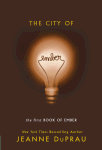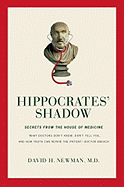"I know I'm going to be portrayed as bipolar for having Jack and the Box and Breakdowns come out at the same moment," Spiegelman says. Yet, he argues, "It's all on a weird continuum."
 He and his friend Jay Lynch started a magazine called Blasé as teenagers and both worked at Topps writing copy for Wacky Packs, as Spiegelman writes in his introduction to Wacky Packages (Abrams, June 2008). Now both Lynch and Spiegelman have written titles for Toon Books, a series of beautifully produced paper-over-board comic books aimed at beginning readers and edited by Françoise Mouly (see Shelf Awareness, March 5, 2008). Spiegelman's Jack and the Box (Toon Books, October 7) explores the idea of a child overcoming fear through his repeated experiences with a Jack-in-the-Box, a gift from his parents. The bunny hero's name is Jack; the fellow in the box is called Zack. A teal-colored palette establishes the world that Jack inhabits with his parents; when Zack pops up, he introduces touches of red (in his bulbous nose, accordion-style collar and top hat). But when the boy Jack is alone with his gift, the palette changes for each "scene," divided into four-panel spreads. When Zack pops out, the panel tilts, often against a different-colored backdrop. "Come out and play!" says Jack. After repeated pleas to an elusive Zack, Jack says, "Bad toy!" So Zack pops out to defend himself. And later, when Zack jumps out of his box entirely, bouncing about the boy's room, chaos ensues, including the addition of a tiny man named Mack and his pet duck, Quack. But Jack and Zack work things out for themselves, and come to an understanding of each other.
He and his friend Jay Lynch started a magazine called Blasé as teenagers and both worked at Topps writing copy for Wacky Packs, as Spiegelman writes in his introduction to Wacky Packages (Abrams, June 2008). Now both Lynch and Spiegelman have written titles for Toon Books, a series of beautifully produced paper-over-board comic books aimed at beginning readers and edited by Françoise Mouly (see Shelf Awareness, March 5, 2008). Spiegelman's Jack and the Box (Toon Books, October 7) explores the idea of a child overcoming fear through his repeated experiences with a Jack-in-the-Box, a gift from his parents. The bunny hero's name is Jack; the fellow in the box is called Zack. A teal-colored palette establishes the world that Jack inhabits with his parents; when Zack pops up, he introduces touches of red (in his bulbous nose, accordion-style collar and top hat). But when the boy Jack is alone with his gift, the palette changes for each "scene," divided into four-panel spreads. When Zack pops out, the panel tilts, often against a different-colored backdrop. "Come out and play!" says Jack. After repeated pleas to an elusive Zack, Jack says, "Bad toy!" So Zack pops out to defend himself. And later, when Zack jumps out of his box entirely, bouncing about the boy's room, chaos ensues, including the addition of a tiny man named Mack and his pet duck, Quack. But Jack and Zack work things out for themselves, and come to an understanding of each other.
Characteristically Spiegelman broke all boundaries of the book format with his first children's book, Open Me, I'm a Dog! (HarperCollins/Cotler, 1997). The dog, who narrates, attempts to convince readers that they really are holding a dog in their hands, rather than a book. The tail pops up, as if to wag, there's a furry patch children can pet, and a leash attached to the spine. "Did you ever see the point-of-purchase display I did for Open Me, I'm a Dog? It was the most diabolical thing I've ever done," Spiegelman, delighted, gets up from the table to grab a sample. "This had a battery and it was placed presumably at kid level. And then what would happen is the mother would be in the store and there'd be this thing with a wagging tail hypnotizing the kid and saying, 'Buy me, buy me.'" The actual slogan on the display says, "Read me, feed me, take me home." This was a throwback to Spiegelman's days with the Garbage Pail Kids and Wacky Packs. "There the idea was to wrest the quarter out of the kids' hands directly," he says. With Jack and the Box, he has to get past the customary gatekeepers--parents, teachers and librarians: "It's a different world where one is talking to the kid as a member of a civilized and socialized unit rather than the barbarics in a candy shop."
As always, he did a fair amount of research for Jack and the Box. Mouly has been working closely with teachers and librarians to ensure that the vocabulary and the concepts are well matched to the beginning readers she's trying to reach. Again, with shades of his Wacky Packs days, Spiegelman was using his equivalent of a rhyming dictionary, as he did with, say, his "Quacker Oats" trading card. "I was reading about how kids learn to read; they don't teach Q in some schools in first grade because it's too complicated to have a "Qu" and I thought, what can I do? I can't misspell it; that would be wrong. So I just figured okay, if it's Zack, Mack, Jack and then there's a duck and his mouth is open and there's something that says, "Quack," they'll be introduced to Q a couple of months before it would come their way otherwise, and all the clues are there." He adds slyly, "So if they're on a desert island trying to decode this book they'll figure out what the duck is saying."
If you don't believe his work is all on a weird continuum, take a look at the entry in Breakdowns called "Cracking Jokes." It stars a jack-in-the-box. Here's what it says on Jack's box: "The child's jack-in-the-box provides a potent example of the joke in its primitive form. A momentarily threatening surprise proves itself to be harmless. The child learns to master its fears through laughter." Indeed, that's just what Jack does in Jack and the Box (though the surprise is not quite as "harmless" for Jack, all ends well). The jack-in-the-box in Breakdowns, however, sports a jester's cap made of flaccid penises, which Spiegelman explains, was true historically--the cap indicated that the jester was impotent (a castrate) and therefore could say whatever he wanted. "I was trying to do something in 'Cracking Jokes,' which was to use comics to make an essay, which isn't what comics were for," Spiegelman explains. "They could be used to tell a joke, an escapist adventure story, a tedious history lesson in the educational comics, but to actually make an essay that made use of the fact that you had the visual component as part of the essay was for me one of the discoveries when I was doing these more experimental strips." He says that the strip also influenced others, including Scott McCloud, who later told Spiegelman that "Cracking Jokes" is what told him how to do his book Understanding Comics.
Despite Spiegelman's often bleak world view ("After all, disaster is my muse," he writes in No Towers), he remains, dare we say it, hopeful about the future of comics. "You can take something appalling like Obama Nation or [something like] James Joyce and feed them both into a kindle and look at it in whatever typeface you want and it will all pour in. But comics are totally site-specific. They have to be a certain size and they have to be a certain way, and the paper makes a difference, like in the Breakdowns book the stiff paper that separates the 1970s cover from the front and again in the back, making this a three-part work. You can't do that on a screen," Spiegelman says. "We keep hearing about the death of the book and the rise of the kindle and all of that stuff. What's ironically great is the same technology which is ostensibly replacing the book has made it possible to print the most beautiful books in the history of printing. And I think that's why comics are flourishing right now."--Jennifer M. Brown








BINC.0408.T2.SPRINGFUNDRAISER.jpg)

 City of Ember, based on the novel by Jeanne Duprau, opens October 10. In a city of perpetual darkness all light comes from a mysterious generator that shows signs of failing. Featuring Bill Murray, Tim Robbins and Martin Landau. The movie tie-in edition is available from Yearling ($6.99, 9780385736282/0385736282).
City of Ember, based on the novel by Jeanne Duprau, opens October 10. In a city of perpetual darkness all light comes from a mysterious generator that shows signs of failing. Featuring Bill Murray, Tim Robbins and Martin Landau. The movie tie-in edition is available from Yearling ($6.99, 9780385736282/0385736282). Ron Rash is the author of three novels, One Foot in Eden, Saints at the River and The World Made Straight, three collections of poems and two collections of stories. His latest novel, Serena, was published yesterday by Ecco. A recipient of the O. Henry Prize, he holds the John Parris Chair in Appalachian Studies at Western Carolina University.
Ron Rash is the author of three novels, One Foot in Eden, Saints at the River and The World Made Straight, three collections of poems and two collections of stories. His latest novel, Serena, was published yesterday by Ecco. A recipient of the O. Henry Prize, he holds the John Parris Chair in Appalachian Studies at Western Carolina University. This challenging book might better have been subtitled: "Everything You Think You Knew about Medicine Is Wrong." In it, David Newman, a clinical researcher and emergency room physician in New York City, strives to upend our current understanding of the doctor-patient relationship and argues persuasively for a new paradigm.
This challenging book might better have been subtitled: "Everything You Think You Knew about Medicine Is Wrong." In it, David Newman, a clinical researcher and emergency room physician in New York City, strives to upend our current understanding of the doctor-patient relationship and argues persuasively for a new paradigm.
 He and his friend Jay Lynch started a magazine called Blasé as teenagers and both worked at Topps writing copy for Wacky Packs, as Spiegelman writes in his introduction to Wacky Packages (Abrams, June 2008). Now both Lynch and Spiegelman have written titles for Toon Books, a series of beautifully produced paper-over-board comic books aimed at beginning readers and edited by Françoise Mouly (see
He and his friend Jay Lynch started a magazine called Blasé as teenagers and both worked at Topps writing copy for Wacky Packs, as Spiegelman writes in his introduction to Wacky Packages (Abrams, June 2008). Now both Lynch and Spiegelman have written titles for Toon Books, a series of beautifully produced paper-over-board comic books aimed at beginning readers and edited by Françoise Mouly (see